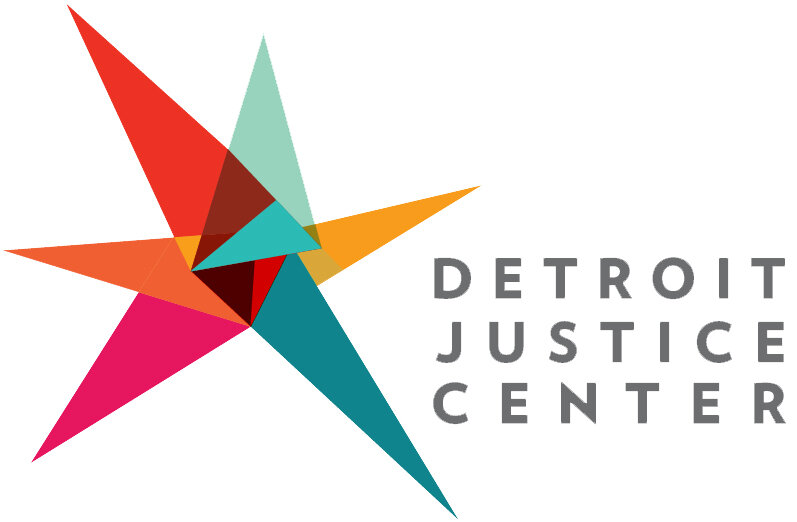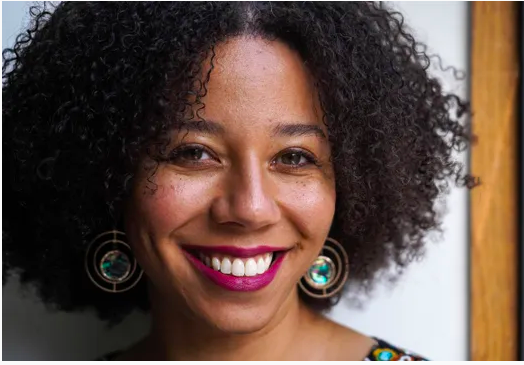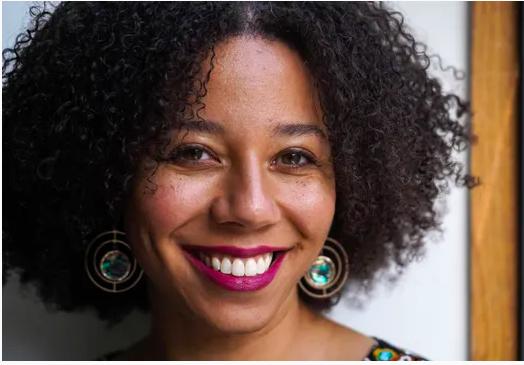Amanda Alexander photographed by Ryan Garza, Detroit Free Press
Michigan must shrink the number of people in our jails but that’s only a start — our real work ahead is to push for transformative change. The Michigan Joint Task Force on Jail and Pretrial Incarceration published an analysis of why Michigan’s jail population has nearly tripled since 1975 — and recommended policy changes to make our communities safer and healthier while we drive down jail populations.
The task force’s recommendations don’t go nearly far enough.
If passed into law, they would reduce a lot of harm, but when we continue to police and incarcerate communities as the only way of investing in them, it means that we lack the imagination to find better ways to address and prevent harm.
It means that we, as a society, are fine with sorting people into those we give a damn about, and those we’ll push to the brink of destruction.
As founding executive director of the Detroit Justice Center, I represented pre-trial services on the task force, but I also brought my experience as someone who has had an immediate family member incarcerated. I also carried the insights of clients who have spent time in county jails because they could not afford bail, and the insistence of communities that have been calling for change for years. The task force invited Michiganders to share their experiences of courts, jails and victim services — and people came out in force.
From Detroit to Traverse City, individuals were deeply courageous and generous in sharing their stories and their visions for how we can create thriving, just communities.
They drove hours to testify, taking time off work, carrying letters from loved ones inside, speaking secrets they’d held for decades about harm they’d caused and harm they’d experienced — in some cases, putting their pain into words for the first time. One woman described being picked up on a traffic warrant and jailed, and the pain of having her breasts swell with milk when she could not breastfeed her baby for days.
Domestic violence survivors explained how locking people up did nothing to prevent violence from happening in the first place.
Families described the desperation of knowing your loved one needs treatment for schizophrenia but feeling hopeless because jail beds are more plentiful than therapeutic care.
We listened to story after story of times the “justice” system made horrible circumstances even worse, piling more trauma on trauma.
The task force also visited the Genesee County Jail. At the time of our visit, 95% of people held in the jail had not been convicted or sentenced for an offense.
At our roundtable we met a man who has been awaiting trial for four years. He’s a father of four, and because the jail has done away with contact visits, he hasn’t hugged his six-year-old son since the child was two.
This visit drove home that we can’t just focus on jail “churn” — the majority of people who are locked up for a short time, but who might lose their job, housing, or custody of their children as a result. We also need to confront the horrific reality of people who are incarcerated for months or years because of decisions and delays by judges, prosecutors and jailers.
The task force’s key findings affirmed that our jails are full of people who are there because of underlying problems of poverty, mental health, and criminalization of substance use.
The third most common reason for jail admission is driving with a suspended license.
The most common reason for arrests: missing your court date.
Traffic violations made up half of all criminal cases. In 2018, nearly 358,000 licenses were suspended for failure to appear and failure to pay fines and fees.
Black people were more likely than whites to be arrested for driving with a suspended license — a phenomenon one man described as the “fly trap” that awaits black people when they drive beyond the city limits of Detroit.
The recommendations include a plan for stopping driver’s license suspensions that will help end the vicious cycle that so many people are trapped in — being poor, not being able to pay your fines, having your license suspended and a warrant issued for failing to come to court.
There are also recommendations for reducing the use of cash bail and pretrial detention, with a pathway for ending cash bail entirely. After hearing from people whose lives fell apart when they couldn’t afford pretrial drug tests (one man in northern Michigan described hitchhiking into town to drug test multiple times a week, paying $10 each time, and ultimately losing his job when he couldn’t keep up), the task force recommended strict limits on pretrial conditions and an expansion of proven supports like text-message court reminders.
Beyond these steps, we also need to consider wholesale decriminalization as a powerful tool for reducing arrests and incarceration.
It’s not enough to turn misdemeanor crimes into civil infractions, because you may still be subject to unaffordable fines and, ultimately, jail time. We need to explore how we can simply strike offenses from the books. Other states including Illinois, Minnesota, Kansas, and Hawaii have all established task forces to examine their criminal laws in the past decade and we should do the same.
Over the past decade in Michigan, arrests have fallen for every group except black women. If we do not have specific data and specific responses to reduce arrests and incarceration for black women — and Native people, trans people, immigrant communities, and other criminalized populations — then we’re leaving the systemic racism and gendered violence at the heart of this system intact.
In that case, we will continue communicating to the people of Michigan whose lives we value, and whose lives we will subject to devastating cycles of punishment.
Finally, we need clear policy strategies for community reinvestment. It’s not enough to reduce jail populations; we need to shift our funding away from police, courts, and jails and towards the things we so desperately need — like mental health services, substance use treatment, and affordable housing.
Across the state, Michiganders are calling for — and organizing hard for — resources to truly care for the health and well-being of their communities. Like all real change, it’s people power that will make that shift happen. Transformative change happens when groups being crushed by a system force those in power to change it. I have more faith than ever in the people of this state to keep pushing until our communities are free and thriving.


